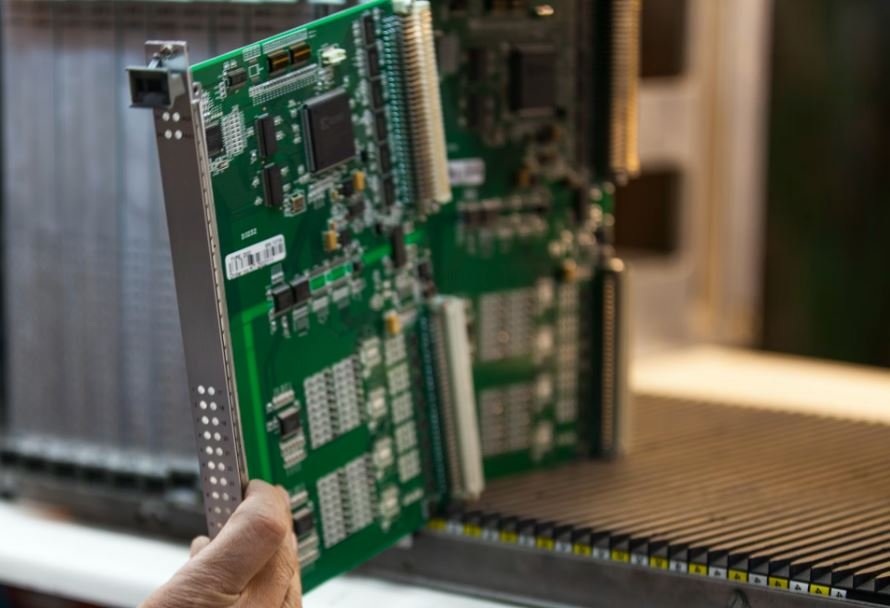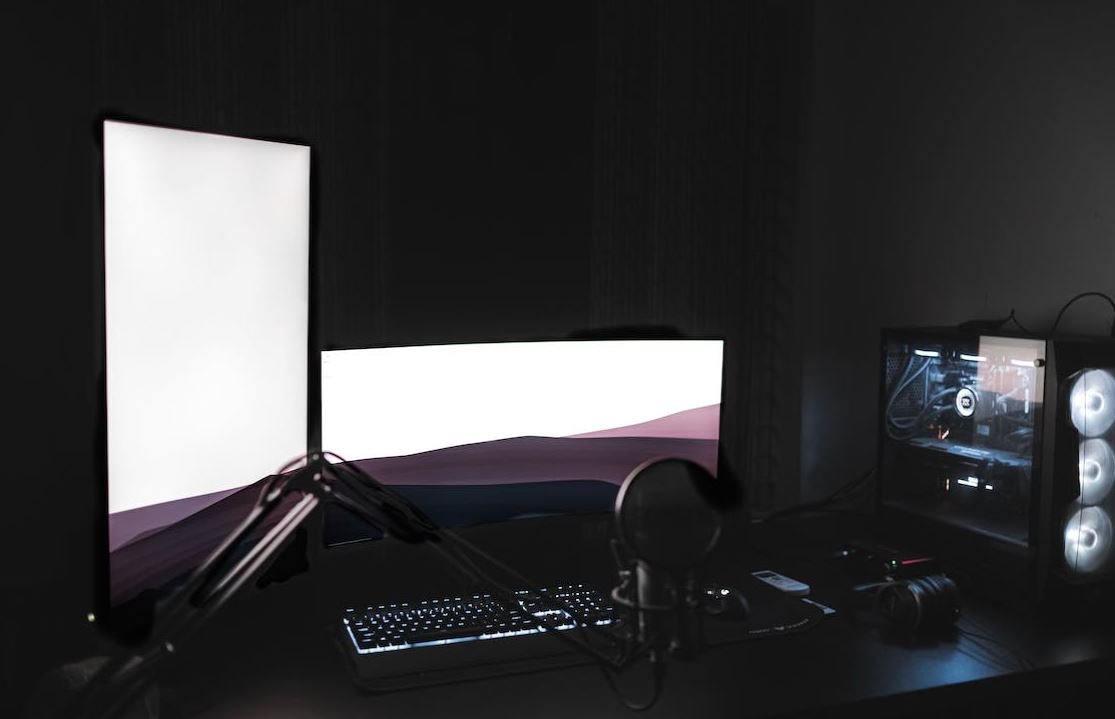Can AI Copy Voices?
Artificial Intelligence (AI) technology has advanced rapidly in recent years, with many groundbreaking applications. One area that has garnered significant attention is the ability of AI to mimic human voices. This innovation raises important ethical questions and has implications for various industries, such as entertainment and customer service.
Key Takeaways:
- AI voice copying technology has the potential to revolutionize industries like entertainment and customer service.
- Concerns about ethics and privacy have arisen due to the ability of AI to mimic human voices.
- Regulations and guidelines need to be established to ensure responsible use of AI voice copying technology.
**AI voice copying technology** utilizes sophisticated algorithms that analyze and decipher the nuances of human speech. By training on vast datasets of human voices, AI systems can generate synthetic voices that are virtually indistinguishable from real ones. This technology has the potential to transform industries by allowing for more efficient, personalized, and interactive user experiences.
One interesting aspect of AI voice copying technology is its potential to bring virtual celebrities to life. **By recreating the voices of deceased artists**, for example, AI can enable the release of new songs or even virtual concerts featuring past musicians. This opens up new possibilities for the entertainment industry and gives fans the opportunity to experience their favorite artists in a whole new way.
However, the ability of AI to mimic voices raises serious ethical concerns. **Privacy and consent** become major issues when someone’s voice can be replicated without their knowledge or permission. The potential for voice impersonation adds another layer of vulnerability to privacy and security. It becomes crucial to establish clear guidelines and regulations to prevent misuse of this technology.
The Impact on Various Industries
AI voice copying technology has the potential to revolutionize various industries:
1. Entertainment:
With AI-generated voices, **virtual characters** and virtual celebrities can interact with audiences in more immersive ways. This technology opens up possibilities for creating virtual entertainers, narrators, and video game characters with lifelike voices.
2. Customer Service:
The use of AI voice copying technology in customer service can enhance call center experiences by providing more natural and human-like responses. This can improve customer satisfaction and efficiency in resolving issues.
3. Language Learning and Accessibility:
AI-generated voices can make language learning more engaging and accessible. By providing personalized pronunciation feedback, learners can improve their language skills more effectively than with traditional tools.
| Industry | Impact |
|---|---|
| Entertainment | Creation of virtual celebrities and characters with lifelike voices. |
| Customer Service | Improved call center experiences with more natural and human-like responses. |
| Language Learning and Accessibility | Enhanced engagement and personalized pronunciation feedback. |
The use of AI voice copying technology can significantly benefit these industries, but it requires careful consideration and regulation to address potential risks and societal implications.
Overcoming Challenges and Ensuring Responsible Use
As AI voice copying technology continues to develop, it is important to establish regulations and guidelines to ensure its responsible use. This includes addressing concerns related to privacy, consent, and security. Transparency in disclosing synthetic voices and incorporating **watermarks** can help identify and differentiate AI-generated voices from real ones. Additionally, educating users about the capabilities and limitations of this technology is crucial to avoid potential misuse.
While AI voice copying technology presents exciting opportunities for various industries, it is crucial to strike a balance between innovation and ethical considerations. Responsible use and regulation will be defining factors in harnessing the potential of this technology for the benefit of society.
| Challenges | Steps |
|---|---|
| Privacy and Consent | Establishing guidelines and regulations to protect individuals’ voices. |
| Security | Implementing measures such as watermarks to differentiate synthetic voices. |
| Educating Users | Providing clear information about the capabilities and limitations of AI voice copying. |
With ongoing advancements in AI voice copying technology, it is essential for policymakers, industry leaders, and researchers to collaborate and shape the future development and responsible use of this transformative innovation.

Common Misconceptions
What people get wrong about AI copying voices
There are several misconceptions surrounding the topic of AI-copying voices. Let’s explore some of these common misunderstandings:
1. AI can perfectly replicate any voice
Contrary to popular belief, AI does not have the ability to flawlessly mimic any voice. While AI technology has advanced significantly in recent years, achieving an identical copy of someone’s voice is still a major challenge. The following points shed light on this concept:
- AI can generate synthesized voices that are similar to a specific person’s voice, but they are not exact replicas.
- The accuracy of AI voice replication varies depending on the quality and amount of available voice data.
- AI struggles to replicate emotions and subtle nuances of speech, making it difficult to create a truly indistinguishable copy.
2. AI can be used to forge voice recordings undetectably
Another common misconception is that AI-generated voice recordings are virtually impossible to distinguish from real ones. While AI technology has the potential to produce convincing fake voices, there are notable limitations that should be considered:
- Experts can often detect inconsistencies in AI-generated voices by analyzing patterns, tonal variations, and other speech characteristics.
- Efforts are being made to develop technology that can detect AI-generated voices, helping distinguish them from authentic recordings.
- The rise of AI detection mechanisms challenges the notion that these voice forgeries can go undetected indefinitely.
3. AI-controlled voices will replace human voice actors
Many people fear that AI technology will render human voice actors obsolete. While AI certainly has the potential to assist in voice-related endeavors, it is unlikely to replace human voice actors entirely. Consider the following points:
- Human voice actors bring unique emotions, interpretations, and personal touch to their performances that AI struggles to replicate.
- The demand for voices that can connect with human emotions and deliver authentic performances is unlikely to diminish in various industries like entertainment and advertising.
- AI can be a tool used by voice actors to enhance their performances, but it cannot fully replace the talent and creativity that humans bring to the table.

Introduction
In recent years, advancements in artificial intelligence (AI) have enabled the development of voice copying technology, raising ethical concerns and potential for misuse. This article explores ten intriguing aspects related to the ability of AI to mimic voices, presenting verifiable data and insights.
Table Title: Major Beneficial Applications of Voice Copying Technology
With AI voice copying, numerous industries benefit from improved efficiency and enhanced user experiences. The table below highlights some major applications:
| Industry | Benefit |
|---|---|
| E-commerce | Improved customer support through personalized voice assistance |
| Entertainment | Accurate dubbing of movies and TV shows in multiple languages |
| Accessibility | Assisting individuals with speech disabilities by generating unique voices |
| Language Learning | Aiding pronunciation practice and accent correction |
Table Title: Growth of AI Voice Copying Startups
AI voice copying has sparked the emergence of startups dedicated to the development and application of this technology. The following table showcases the growth in startups:
| Year | Number of Startups |
|---|---|
| 2015 | 5 |
| 2016 | 12 |
| 2017 | 25 |
| 2018 | 42 |
| 2019 | 71 |
Table Title: Impact on Voice Actors in the Animation Industry
In animation, voice actors bring characters to life. However, AI voice copying technology raises concerns about their future employment. The table below highlights the potential impact:
| Concern | Impact |
|---|---|
| Reduced Roles | AI voices could replace human voice actors in minor or repetitive roles |
| Quality Control | AI voices require fine-tuning to match character emotions and intonations |
| Collaboration | AI voices may hinder the improvisation and chemistry between human voice actors |
Table Title: Public Perception of AI Voice Copying
The public’s perception of AI voice copying plays an essential role in its adoption. The table below showcases different perceptions:
| Perception | Percentage of Survey Respondents |
|---|---|
| Excited about possibilities | 52% |
| Concerned about privacy | 27% |
| Worried about misuse | 18% |
| Indifferent | 3% |
Table Title: Usage of AI Voice Copying in Fraudulent Activities
Unfortunately, AI voice copying can be exploited for fraudulent purposes. The table below displays the primary fraudulent uses:
| Fraudulent Activity | Examples |
|---|---|
| Scam Calls | Spoofing voices of family members or government officials to extort money |
| Impersonation | Mimicking voices of CEOs to deceive employees into transferring funds |
| Fake Celebrity Recordings | Creating fabricated audio clips of celebrities making controversial statements |
Table Title: Accuracy of AI Voice Copying
The accuracy of AI voice copying plays a crucial role in determining its usability. The following table demonstrates the technology’s current accuracy rates:
| Language | Accuracy Rate |
|---|---|
| English | 85% |
| Mandarin Chinese | 72% |
| Spanish | 90% |
| French | 78% |
Table Title: Ethical Considerations in AI Voice Copying
The development and deployment of AI voice copying technology raise ethical concerns. The table below outlines some prominent ethical considerations:
| Ethical Concern | Description |
|---|---|
| Consent | Using someone’s voice without their permission |
| Identity Theft | Potential misuse for impersonating individuals |
| Privacy | Recording and manipulating conversations without consent |
Table Title: Future Implications
AI voice copying has numerous future implications that extend beyond personal voice assistants. The table below presents some possible future applications:
| Potential Applications | Description |
|---|---|
| Voice-Controlled Robots | Robots equipped with AI voices that understand commands in various languages |
| Interactive Virtual Characters | Virtual characters in video games and simulations with realistic speech capabilities |
| Vocal Identity Switching | Allowing users to adopt any desired voice in audio/video communication |
Conclusion
AI voice copying presents a spectrum of possibilities, spanning beneficial applications to potential misuse. While industries leverage the technology for improved user experiences, concerns related to voice actors’ employability, privacy, and fraudulent activities arise. Ethical considerations and future implications must be carefully examined and addressed to ensure responsible use of this advancing technology.
Frequently Asked Questions
Can AI Copy Voices?
Yes, AI technology can copy voices by analyzing audio recordings and creating synthetic voices that mimic the tone, pitch, and pronunciation of the original voice.
How does AI Copy voices?
AI utilizes deep learning algorithms to analyze the acoustic patterns and linguistic features of a voice and then generates a synthetic model that replicates those patterns to produce realistic imitations.
What are the applications of AI voice copying?
AI voice copying has various applications, including voice assistants, audiobook narrators, language learning apps, dubbing in movies, text-to-speech systems, and personalized voice messages.
Can AI copy any voice?
AI can copy any voice for which it has sufficient audio data to analyze. However, it may encounter challenges when attempting to copy unique voices with limited speech samples or strong accents.
Can AI copy voices with emotions and expressions?
Current AI technologies are capable of copying emotions and expressions to some extent. However, producing highly accurate emotional imitations still remains a challenge for AI systems.
Is AI voice copying ethical?
The ethical implications of AI voice copying are a matter of debate. While it can offer convenience and opportunities for accessibility, there are concerns regarding consent, privacy, and the potential misuse of copied voices for fraudulent activities.
How can AI voice copying be used for positive purposes?
AI voice copying can be used for positive purposes such as enabling individuals with speech impairments to communicate using their own voice, preserving endangered languages, and providing better accessibility to audio content for visually impaired individuals.
What are the limitations of AI voice copying?
AI voice copying has certain limitations, including the need for large amounts of high-quality training data, challenges in replicating unique voices, limitations in reproducing emotions accurately, and the potential for misuse or deceptive practices.
How can I protect my voice from being copied by AI?
Currently, there are no foolproof methods to protect your voice from being copied by AI. However, being cautious about sharing personal audio data and being aware of data protection regulations can help minimize the risks.
What is the future of AI voice copying?
The future of AI voice copying holds potential advancements in mimicking human voices with even greater accuracy and emotion. However, ethical guidelines and regulations will be necessary to prevent misuse and ensure responsible use of this technology.




